From the Carpathians to Brescia, from childhood sketches to masterful Blackwork compositions – Richard Dan – better known as Lost Boy, has spent nearly two decades forging his place in the world of Blackwork tattooing. Rooted in an artistic upbringing shaped by folklore, classical music, and a childhood lived in contrasting cultures, his work stands out for its depth, intention, and discipline. In this in-depth interview, he reflects on his origins, his process, his studio Eternal Rebel, and the lessons learned from a lifetime devoted to the craft.
For readers who are not familiar with you, how would you introduce yourself?
I’m Richard Dan (Riccardo D’Andrea), also known as Lost Boy. I am an Italian tattoo artist, and I’ve been practicing the art of tattooing for nineteen years. I’m passionate about art; I love sculpture and classical music, especially Chopin, who often accompanies me during my late-night drawing sessions. I’m fascinated by popular cultures and ancient folklore, from which I draw inspiration for my work.
Where does your artistic background come from?
I was born in the ’80s in Eastern Europe, under the shadow of the Carpathians and a dictatorial regime. In that context, the art of tattooing was shrouded in mystery and prejudice, its rarity only increasing its allure. Tattoos were often seen as symbols of a criminal world, but to me, they were like open books, ready to tell hidden stories. My father was Italian, and through his painting, he instilled a love for art in me from a young age. Our home was a place where the smell of oil and turpentine mingled with my first lines on paper. Drawing was my first love, a passion I cultivated over the years, which eventually led me to the art of tattooing.
How did you start tattooing?
It might sound like a cliché, but my calling was born from a tattoo. In that precise moment, I had a sort of revelation: tattooing was my path. I had always drawn, and I admired the art of tattooing, but I had never connected the dots. It was only when I felt the needle on my skin that I understood. Within a few days, I bought my first equipment and started tattooing my own legs, without online guides or video tutorials. My training came from books and DVDs ordered by mail, which I had to translate and decipher.
As you have a studio in Italy, would you please share us more about it?
My Eternal Rebel Tattoo Parlour, the studio I opened in 2011, is a second home to me. Today, I consider it my creation, where I have a second family I’m proud of and countless guests from all over the world.
How would you describe the tattoo scene these day?
I believe the tattoo scene is constantly evolving globally. Today, the growth path for young tattoo artists is smoother thanks to courses, seminars, video material, social media, and new technologies for drawing and tattooing, allowing them to achieve high-quality standards in less time.
However, I also notice a proliferation of people profiting and young individuals approaching tattooing superficially, more interested in appearance, followers, and immediate gain, neglecting the art and technique. This often leads to figures who are influencers or entertainers who, from my point of view, are not true tattoo artists.
Fortunately, most people approach tattooing seriously and constructively, and they will be the future of this environment.
How would you define your tattoo style?
I don’t have a precise definition for my style, but I would define it as Blackwork. I use exclusively pure black ink, without dilutions or other colors. I play with the space between bold lines and thinner lines, sometimes omitting the outline entirely. Shading and fills are done entirely with a small liner needle, usually a 3RL, at low voltages. The main challenge is creating chiaroscuro with fluid tonal transitions and no sharp breaks, achieving softness and smooth effects using only saturated black and, usually, a single needle size.
What is your creative process when developing a tattoo?
I work very instinctively and develop projects after listening to my clients. When they open up and explain what they want their tattoo to express or tell, I try to celebrate their victories and defeats, big or small, by etching them onto their skin in a special way with an intimate interpretation, understandable only to them and those they wish to involve. I don’t like clichés or trivial projects, those that are trendy but leave nothing for me or the client. A tattoo is a precious connection and a unique celebration, as special as the skin that will bear it.
Where do you find inspiration for your work?
My primary source of inspiration lies deeply in the feeling that animates the concept the client wishes to imprint on their skin. I allow myself to be shaped by emotions, by the nuances that distinguish their idea, because I believe every tattoo should be a faithful echo of an inner experience. And I would like to emphasize how the stylistic approach that often distinguishes me, what some define as “dark,” should not be simplistically labeled as evil. I consider it, rather, one of the many facets of the human being, a side of existence too intense and significant to be ignored. Through darkness, paradoxically, light can be highlighted, just like in a chiaroscuro of the soul.
For everything else, my creativity is fertile ground open to countless influences. Music, films, moods, the vibrations of the world around me, the stories I hear: everything mixes and settles, composing a sort of unique recipe from which my creations emerge.
What is the most challenging aspect of being a tattoo artist in 2025?
Hahahah! Good question. For me, it’s mainly about time. I’m often busy and periodically away from home for work, which has its pros and cons.
And the most rewarding aspect?
The satisfaction of the people who entrust me with their skin is undoubtedly the most rewarding aspect.
What is your experience with tattoo conventions?
I’ve been attending tattoo conventions for eighteen years now. I’ve had the honor and pleasure of meeting a lot of artists and legends in this field. I’d like to mention two people in particular for whom I have great respect: one is Lyle Tuttle, whose wise advice I still cherish today, and the other is Maurizio Fiorini, who still embodies my idea of what it means to be a true tattoo artist. Both are examples of humility and humanity, a rare commodity these days.
Do you remember your first tattoo convention?
I think it was the first edition of the La Spezia Tattoo Convention.
What is your primary reason to attend a tattoo convention?
Without a doubt, the main reason to attend a tattoo convention is sharing, meeting new colleagues, getting new inspiration, and creating new connections.
What’s your favorite tattoo convention so far? And why?
I don’t have a single favorite convention, but I can mention a few.
I have a wonderful memory of the Florence Tattoo Convention at Fortezza Da Basso, which was also the first convention I ever visited, and it captivated me with its magic when I was just starting out in this profession. I later participated in several editions. I remember the first time I was left speechless watching an immense Robert Hernandez tattooing with a machine that had an exploded coil, yet he was still masterful. Moving on to Milan, where I met another visionary tattoo artist, Norm’s Love Letters, who is unfortunately no longer with us.
And then the editions of Tattookonwent in Poland, where I had the honor of being a judge and saw the incredibly high quality of Polish colleagues.
Anyway, every convention has left me with something.
What advice would you offer to someone considering a career as a tattoo artist?
The advice I would give is to always work with respect and humility. The path of a tattoo artist is a slow and winding uphill road. Fame is an illusion, and money is a consequence of the work done, but nothing more. So, the focus should be kept on the tattoo, on discipline, on the spirit of sacrifice, investing oneself to improve with a solid ethic. Things will slowly come to those who have consistency and patience in what they do.
Who do you admire within the tattoo community?
I admire and respect a lot of colleagues; it would be a very long list.
What achievement are you most proud of?
Undoubtedly, my creation, Eternal Rebel Tattoo Parlour in Brescia, Italy, is a place that many colleagues and I can call home.
Do you practice other forms of art besides tattooing?
Drawing. I’d like to paint more frequently, and I’d like to start playing music again.
What are your upcoming goals or projects?
Soon, I’ll also start working in the United States, then there will be the East. In the near future, there’s a new tattoo shop in the pipeline, an Eternal Rebel 2.0, but it’s still top secret. I can say it won’t be in Italy.
To close this excutive interview, is there anything else you would like to share with our readers?
Of course, I hope I haven’t bored them! And I hope I’ve contributed as a person and a tattoo artist in this interview. And of course, remember: “Don’t be afraid to walk through the darkness; only through it will you truly appreciate the light.”
-Richard Dan, Lost Boy-
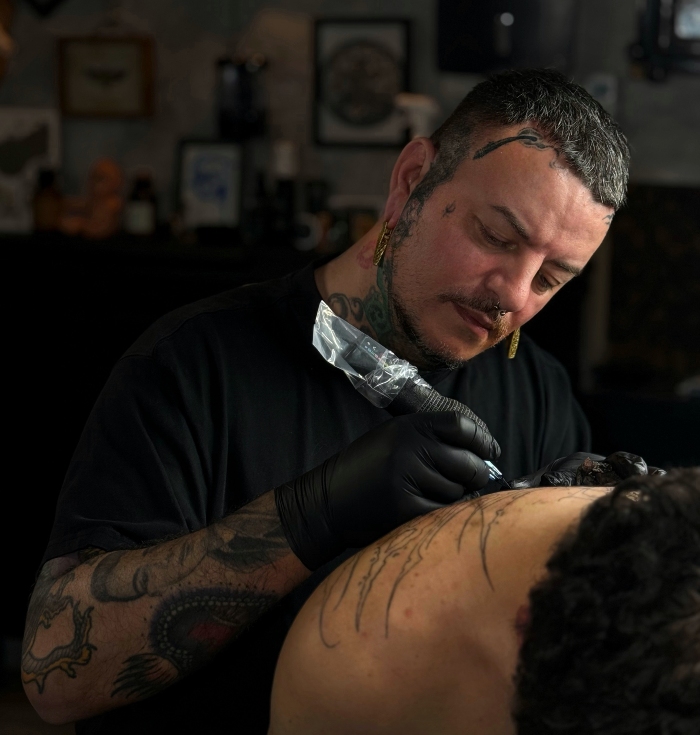
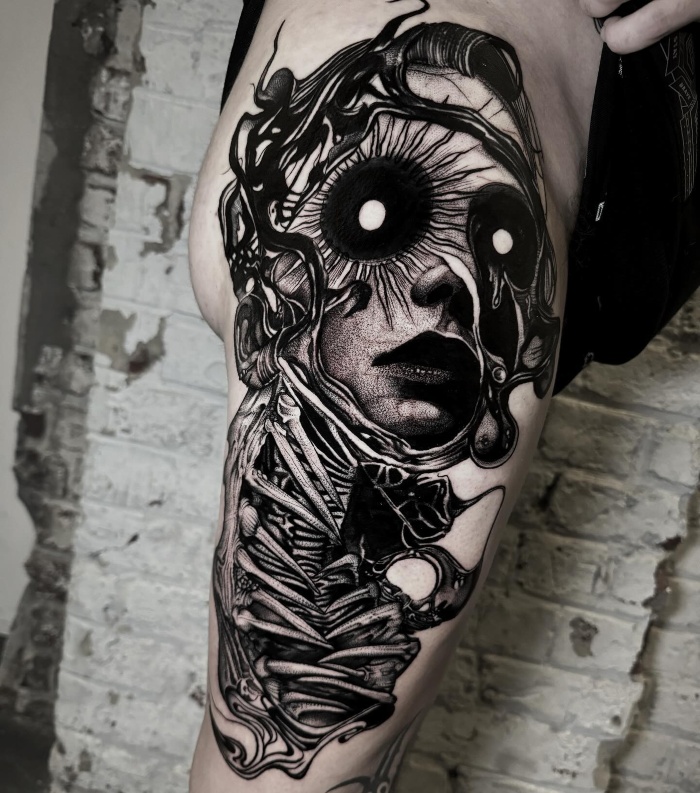

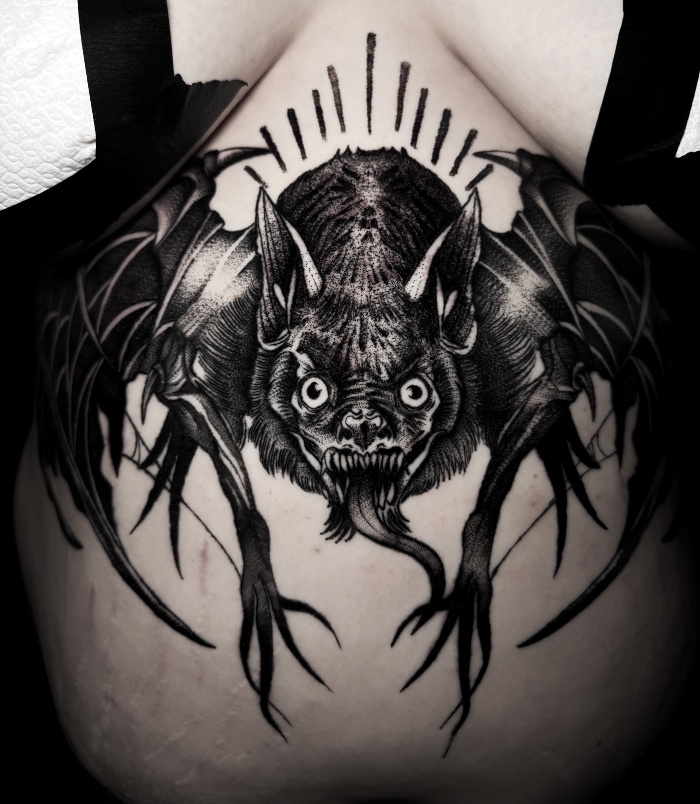
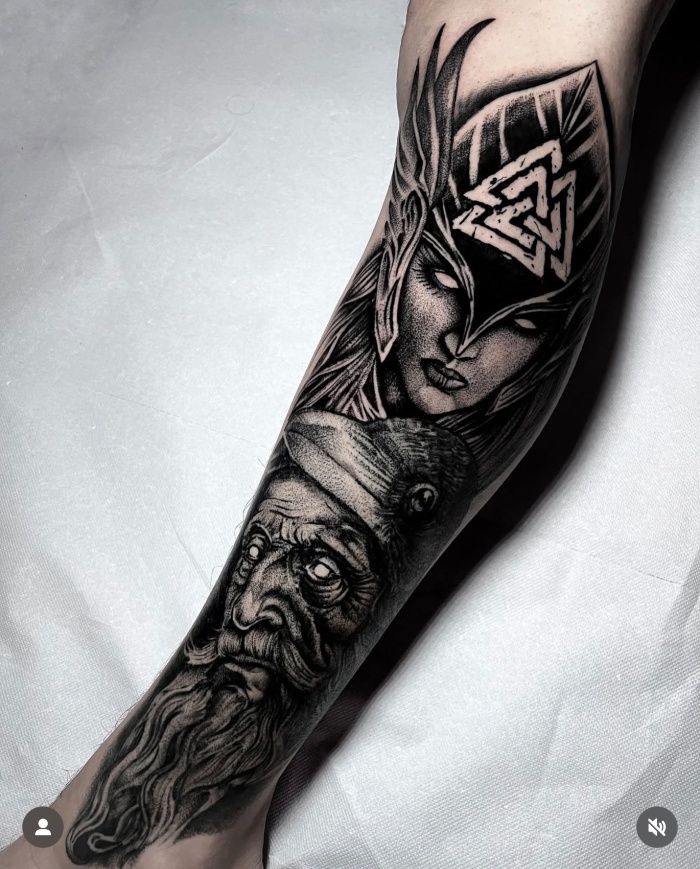
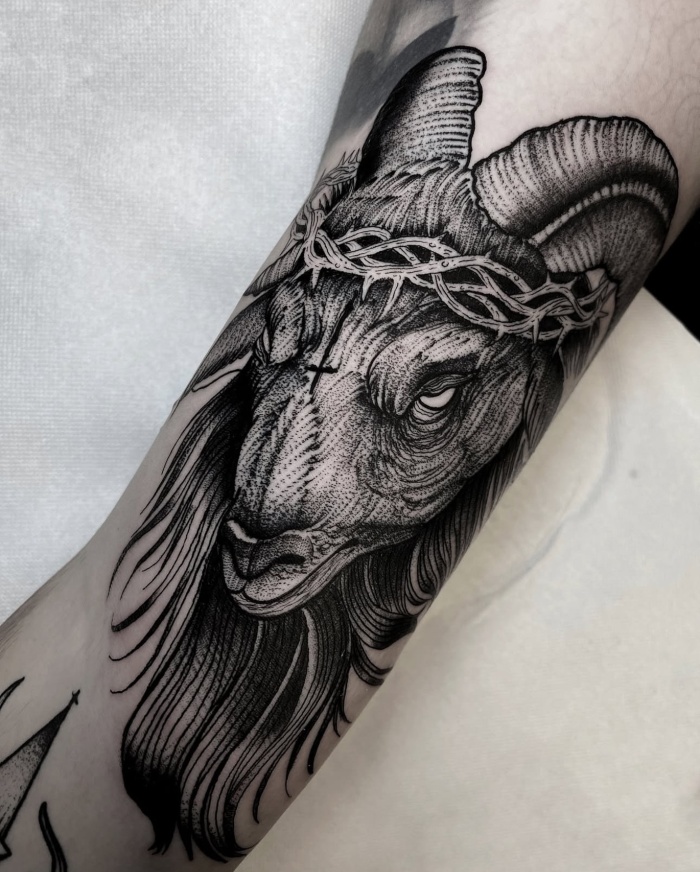
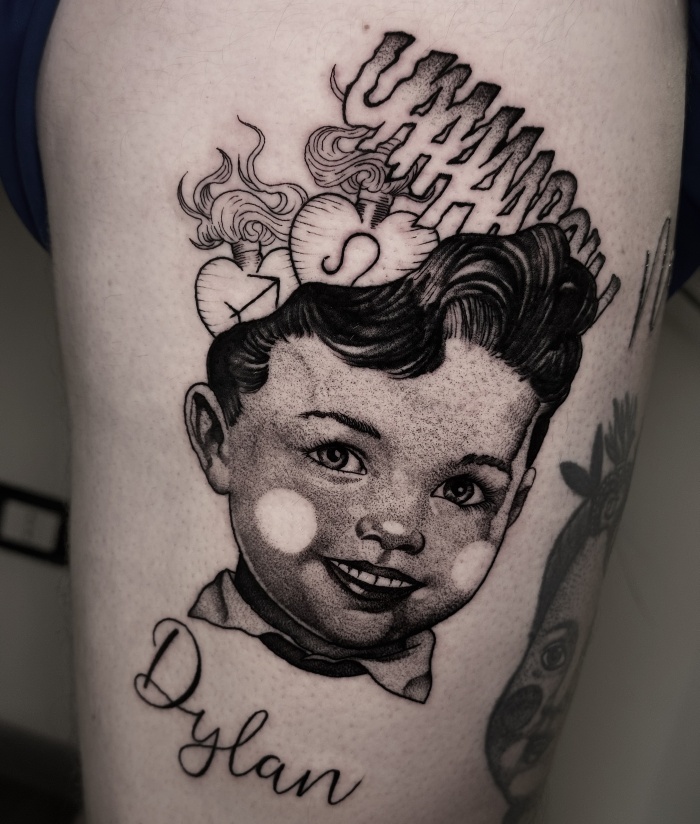
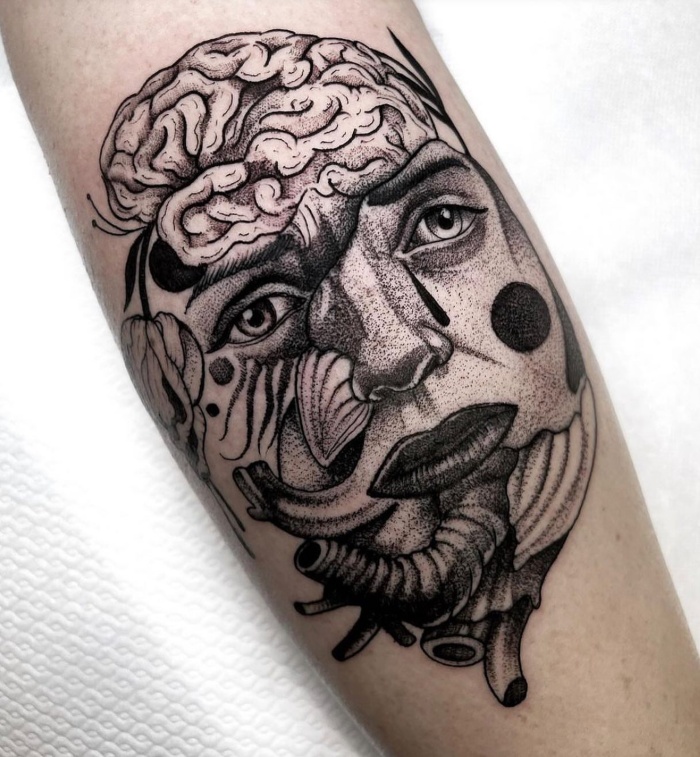
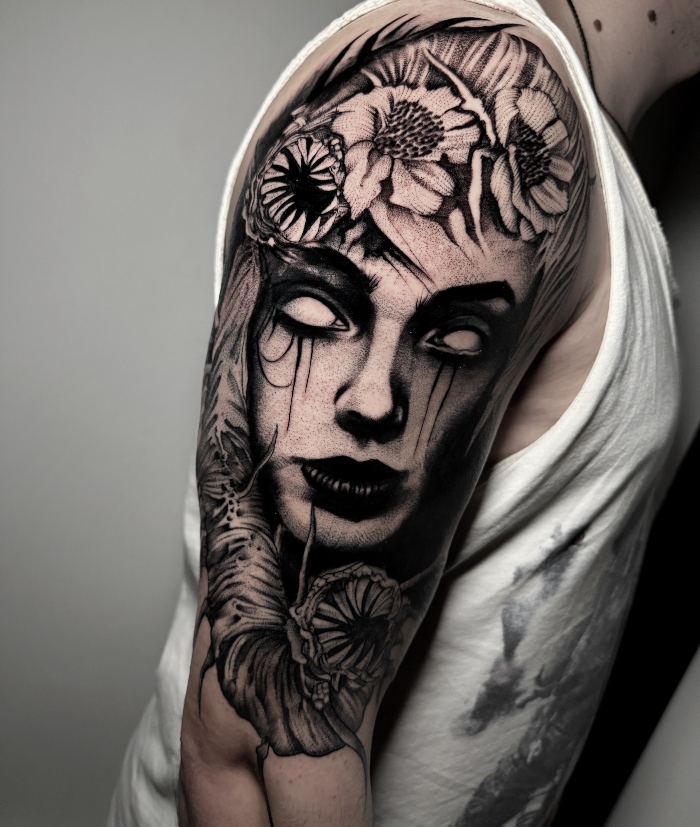
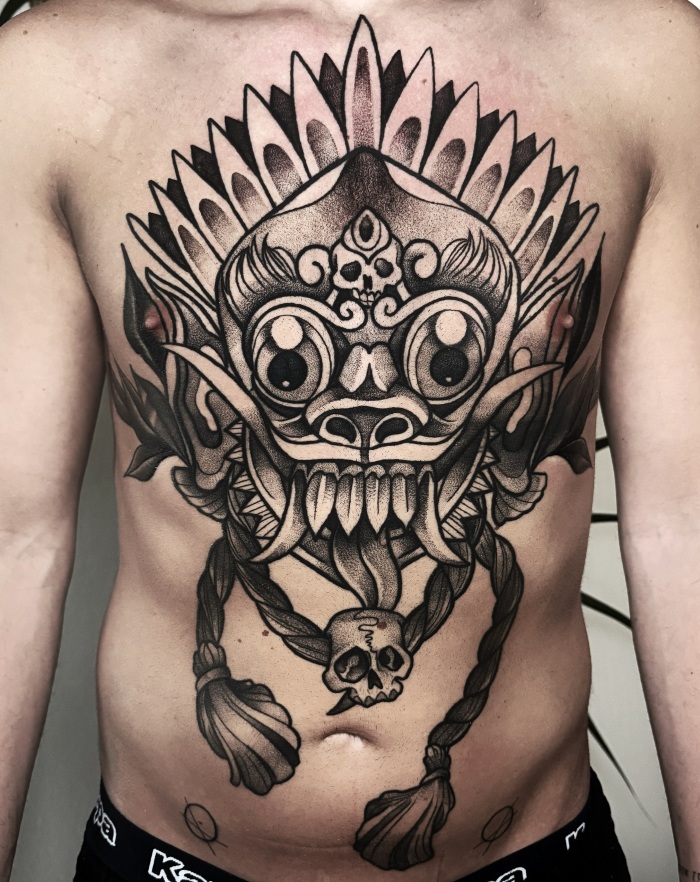


Leave A Comment